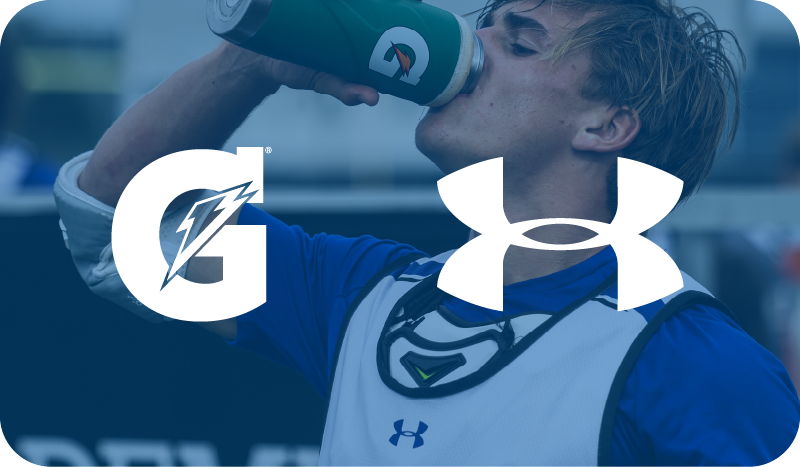Confidence manifests itself in many positive ways in sport. Student-athletes who are confident have improved concentration, focus, and decision-making on the field, leading to better outcomes. They are mentally tough, better able to bounce back from setbacks and challenges, maintain their composure, and persevere in high-pressure situations. Confidence can be contagious, too, spilling from one student-athlete into others, positively influencing team dynamics.
But when confidence is shaky, these attributes get shaky, too, and parents of student-athletes with low confidence might feel helpless to do much about it.
IMG Academy's Duncan Simpson, Director of Personal Development, and Lindsey Hamilton, Head of Mental Performance, identify three signs that parents can watch for to recognize when their student-athlete may be lacking confidence, and provide tips for how parents can help.
Sign #1: Increased Self-Doubt
One sign of low confidence is self-doubt, Simpson says. As a parent, you may notice this when your student-athlete questions their abilities or becomes uncertain about their skill level. They might say things like "I can't do this" or "I'm not as good as my friend," Simpson says.
When student-athletes lack confidence, they might overly rely on coaches, parents, and others for validation. "They constantly seek feedback, like ‘How am I doing?' and ‘How did I perform?'" Simpson says.
Linked with self-doubt is negative self-talk. Tune in to how your student-athlete is talking to themself. Are they beating themself up after mistakes? They might say things like "I suck" or "I'm really terrible." Look for poor body language, such as head hanging low or shoulders slouching.
"Off the field or off the court, you might see it as general second-guessing or hesitation," Hamilton says.
"Often when student-athletes have a lack of confidence in their sport, which is something that they highly identify with, then it causes them to question who they are and what they're doing and the meaning behind that work, and it can show up in other performance arenas as well."
Sign #2: Avoidance of Challenges
Student-athletes who lack confidence may avoid competitive situations, such as tryouts, combines, and trials, Simpson says.
In the performance sense, student-athletes struggling with confidence will avoid situations of comparison. "If they're in a team sport, like soccer or basketball, it's avoiding getting the ball, not wanting the ball, not showing for the ball," Simpson says. "If they're in an individual sport, like tennis, it may be not going for your shots. It would be playing very safe, avoiding failure."
Sign #3: Decrease in Performance
Low confidence can impair a student-athlete's decision-making abilities during a game, which decreases performance, particularly under pressure. They may put forth less effort, make poor choices, or hesitate in critical moments.
"Toward the end of the game or when they're in a heightened state, whether it's a final or something like that, they may perform worse under pressure, especially if they feel people are looking at them," Simpson says.
Perfectionism is a sign of low confidence that can affect performance, too, when a student-athlete is trying to get everything right and "worrying about every little thing," he says.
Solution: Build a Champion Mindset
By recognizing the signs of low confidence in your student-athlete, you are in a prime position to help them regain it.
Positive reinforcement is an obvious step in building a child's champion mindset, Simpson says, noting that it's not necessarily helpful to be positive all the time. "If you just say, ‘No, you're great, you're great,' that doesn't really work," he says.
Simpson talks to his student-athletes about how they may not want to be unilaterally positive, but they should avoid adding negativity, and parents can remind them of this at home, especially when they hear negative self-talk.
Instead, validate their feelings and reinforce their effort. "Ask, ‘What parts of your performance do you think you did well today?'" Simpson says. "And use a scaling system, zero to 10. ‘Not everything's going to be a 10 today, but how did you think your preparation went? How do you think your hydration went? Your stretching? Your warmups?' Using a scaling system can help reinforce that."
Hamilton advises parents to be mindful of the words they use when talking to their children. She says that small adjustments can have a big effect in boosting confidence.
"One of the things that parents often say is ‘Just do your best.' And that's a very well-intentioned statement, but when kids are hearing that, they're hearing ‘Perform at your best level,' like you have to be performing well," she says.
"Parents can instead say, ‘Give your best effort,'" she continues. "That would probably reinforce what the parent is meaning and be a little bit easier for the child to understand what is important to the parent as they pursue their performance in a confident way."
Looking to build confidence in your student-athlete? Sign up for the IMG Academy+ Confidence on-demand course.
Sign Up









